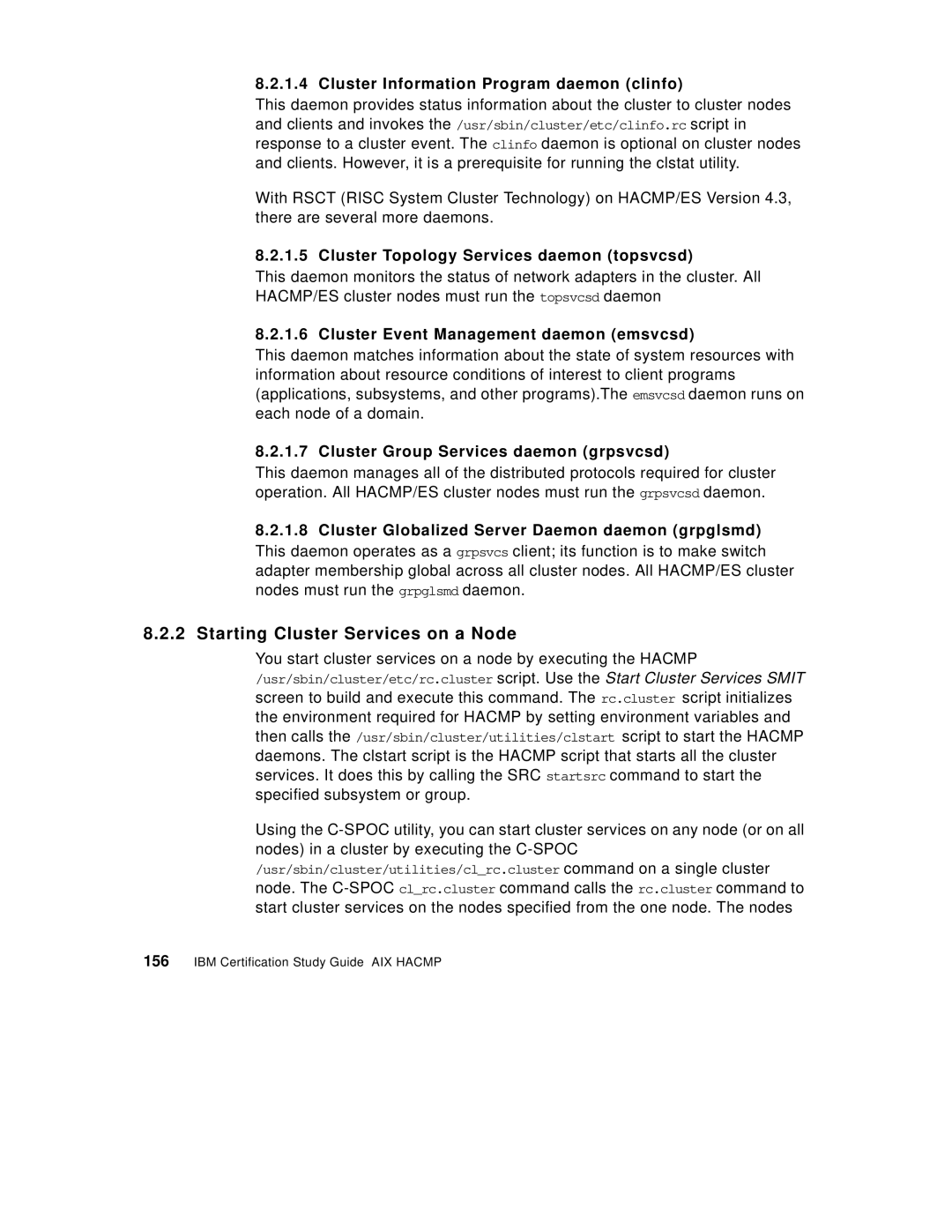8.2.1.4 Cluster Information Program daemon (clinfo)
This daemon provides status information about the cluster to cluster nodes and clients and invokes the /usr/sbin/cluster/etc/clinfo.rc script in response to a cluster event. The clinfo daemon is optional on cluster nodes and clients. However, it is a prerequisite for running the clstat utility.
With RSCT (RISC System Cluster Technology) on HACMP/ES Version 4.3, there are several more daemons.
8.2.1.5 Cluster Topology Services daemon (topsvcsd)
This daemon monitors the status of network adapters in the cluster. All HACMP/ES cluster nodes must run the topsvcsd daemon
8.2.1.6 Cluster Event Management daemon (emsvcsd)
This daemon matches information about the state of system resources with information about resource conditions of interest to client programs (applications, subsystems, and other programs).The emsvcsd daemon runs on each node of a domain.
8.2.1.7 Cluster Group Services daemon (grpsvcsd)
This daemon manages all of the distributed protocols required for cluster operation. All HACMP/ES cluster nodes must run the grpsvcsd daemon.
8.2.1.8Cluster Globalized Server Daemon daemon (grpglsmd) This daemon operates as a grpsvcs client; its function is to make switch adapter membership global across all cluster nodes. All HACMP/ES cluster nodes must run the grpglsmd daemon.
8.2.2Starting Cluster Services on a Node
You start cluster services on a node by executing the HACMP /usr/sbin/cluster/etc/rc.cluster script. Use the Start Cluster Services SMIT screen to build and execute this command. The rc.cluster script initializes the environment required for HACMP by setting environment variables and then calls the /usr/sbin/cluster/utilities/clstart script to start the HACMP daemons. The clstart script is the HACMP script that starts all the cluster services. It does this by calling the SRC startsrc command to start the specified subsystem or group.
Using the
